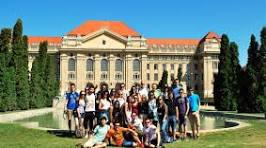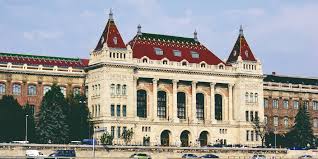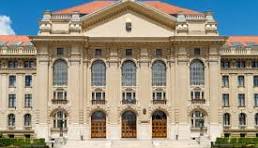
Sure! Here’s a concise content description for "Study in South Korea" that you can use for a website, brochure, blog, or presentation:
South Korea is rapidly becoming one of Asia's top destinations for international students. With globally recognized universities, cutting-edge technology, rich cultural heritage, and strong government support, South Korea offers an exciting and rewarding academic experience.
Students can choose from a wide range of undergraduate, graduate, and language programs taught in Korean or English. The country's vibrant lifestyle, affordable tuition, safe environment, and dynamic job market make it an attractive option for learners from around the world.
Whether you're pursuing a degree in engineering, business, arts, or Korean studies, South Korea provides a unique blend of academic excellence and cultural immersion.
Top-ranked universities (e.g., SNU, KAIST, Yonsei)
Scholarships like the Global Korea Scholarship (GKS)
Affordable living and modern infrastructure
Opportunities to learn Korean and experience K-culture
Work part-time and explore career options after graduation
Would you like versions of this content tailored for Instagram, brochures, or a university fair flyer?
Studying in South Korea can be a great choice depending on your goals, interests, and career path. Here are the main reasons why many international students choose South Korea:
Top universities like Seoul National University, KAIST, Yonsei, and Korea University are globally ranked.
Strong programs in STEM, business, arts, and Korean language.
Cutting-edge research, especially in technology, AI, robotics, and biotech.
Generous government scholarships (e.g., Global Korea Scholarship - GKS).
University-specific scholarships for foreign students.
Lower tuition fees and living costs compared to the US, UK, or Australia.
Home to companies like Samsung, LG, Hyundai, Kakao, etc.
Internships and part-time work options for international students.
A degree from Korea can lead to jobs in Asia or international markets.
Mastering Korean opens up career, travel, and social opportunities.
Rich cultural experience—from K-pop and K-dramas to traditional festivals and food.
Strong support for foreign students adjusting to life in Korea.
South Korea is one of the safest countries in the world.
Excellent public transportation, healthcare, and infrastructure.
Vibrant student life, nightlife, and travel destinations.
Those interested in Asia-Pacific careers
Students wanting a modern, fast-paced environment
Anyone passionate about Korean culture and language
STEM and tech-focused students seeking advanced research facilities
Would you like to compare South Korea to another country, or get help finding programs that fit your field of study?
The cost of living in South Korea for international students depends on your city, lifestyle, and housing choice—but here’s a realistic breakdown to help you plan:
| Expense Category | Seoul | Other Cities (e.g., Busan, Daejeon) |
|---|---|---|
| 🏠 Housing (shared or dorm) | $250–$600 | $200–$400 |
| 🍜 Food (groceries + eating out) | $250–$350 | $200–$300 |
| 🚇 Transportation (subway, bus) | $40–$60 | $30–$50 |
| 📱 Phone & Internet | $30–$50 | $30–$50 |
| 📚 Books & Supplies | $20–$40 | $20–$40 |
| 💃 Leisure/Shopping | $50–$150 | $30–$100 |
🔸 Total (monthly average):
Seoul: $650–$1,200 USD
Other cities: $500–$900 USD
| Type | Monthly Cost (USD) | Notes |
|---|---|---|
| University Dormitory | $200–$500 | Cheapest option, includes utilities |
| One-room Apartment | $400–$800 | Private, utilities separate |
| Goshiwon (mini room) | $250–$400 | Small, shared facilities |
| Shared Housing (Hasukjip) | $300–$500 | Includes meals in many cases |
Meal at a budget restaurant: $5–$8
Meal at cafeteria: $3–$5
Coffee/tea at a café: $3–$6
Grocery shopping (monthly): $100–$200
T-Money (transit card) fare: $1.20–$1.50 per ride
Student monthly pass: discounted in some cities
Intercity bus (Seoul to Busan): $20–$35
Live in university dorms or a goshiwon
Cook at home instead of eating out
Use student discounts on transport, movies, museums, etc.
Apply for on-campus jobs or scholarships
Would you like a custom budget planner based on your target city and study length?
To apply for a student visa (D-2 or D-4) and study in South Korea, you’ll need several essential documents. Here’s a comprehensive checklist, divided into key stages of the application:
These are required when applying to a Korean university (bachelor’s, master’s, PhD, or language program).
Completed application form (online or paper)
Valid passport (photocopy of information page)
Passport-sized photos (usually 3.5cm × 4.5cm, white background)
Graduation certificate (high school, bachelor's, or master's, depending on level)
Academic transcripts
Personal statement or study plan
Recommendation letters (some universities require 1–2)
Language proficiency certificate:
TOPIK (for Korean programs) or
TOEFL/IELTS (for English-taught programs)
Application fee payment receipt
Portfolio (for arts/design majors)
Awards or certificates (if relevant)
CV/Resume (especially for graduate programs)
Once admitted, apply for a visa at your local Korean embassy or consulate.
Visa Application Form (filled out accurately)
Passport (valid for at least 6 months)
Passport photos (recent, same specs as above)
Certificate of Admission (issued by the Korean university)
Standardized acceptance letter (may be issued through the Study in Korea portal)
Proof of financial ability:
Bank statement showing $10,000 USD or more (or equivalent in local currency)
OR scholarship documents
Highest diploma & transcripts (notarized and possibly apostilled or verified)
Tuition payment receipt (if already paid)
Consent for verification of academic records (Korean consulates often require this)
Visa fee (varies by country, usually $40–$90 USD)
Once in Korea, within 90 days, you must apply for:
Alien Registration Card (ARC)
You'll need:
Passport
Visa
Admission certificate
Passport photo
Housing contract or proof of residence
Would you like a downloadable checklist or help verifying what your local Korean embassy requires specifically?
Here’s a helpful list of Frequently Asked Questions (FAQs) for international students planning to study in South Korea:
Spring (March) and Fall (September) are the two main intakes.
Language programs may have 4 intakes: March, June, September, December.
D-2 Visa: For degree programs (bachelor’s, master’s, PhD).
D-4 Visa: For Korean language training or non-degree programs.
Not always. Many universities offer English-taught programs.
However, knowing Korean helps with daily life and increases part-time job opportunities.
Some programs may require TOPIK (Test of Proficiency in Korean).
Yes, with a valid D-2 or D-4 visa and permission from immigration.
Allowed up to:
20 hours/week during semesters
Unlimited hours during vacations
Undergraduate: $3,000–$6,000 USD/year
Graduate: $4,000–$8,000 USD/year
Language programs: $1,000–$1,500 USD per term (approx. 10 weeks)
Yes. Major options:
Global Korea Scholarship (GKS)
University-specific scholarships
Private foundations
Many cover tuition, living costs, and airfare.
$500–$1,000 USD/month, depending on location and lifestyle.
Seoul is more expensive than other cities.
Directly through the university's international office or online portal.
Some may use Study in Korea (www.studyinkorea.go.kr) platform.
Yes, it’s mandatory.
You’ll be enrolled in the National Health Insurance (NHI) after getting your ARC.
Monthly premium is around $40–60 USD for students.
Yes, South Korea is one of the safest countries globally.
Low crime rate and efficient emergency services.
Would you like a printable or shareable PDF of these FAQs? Or want to ask a more specific question about your own situation?



